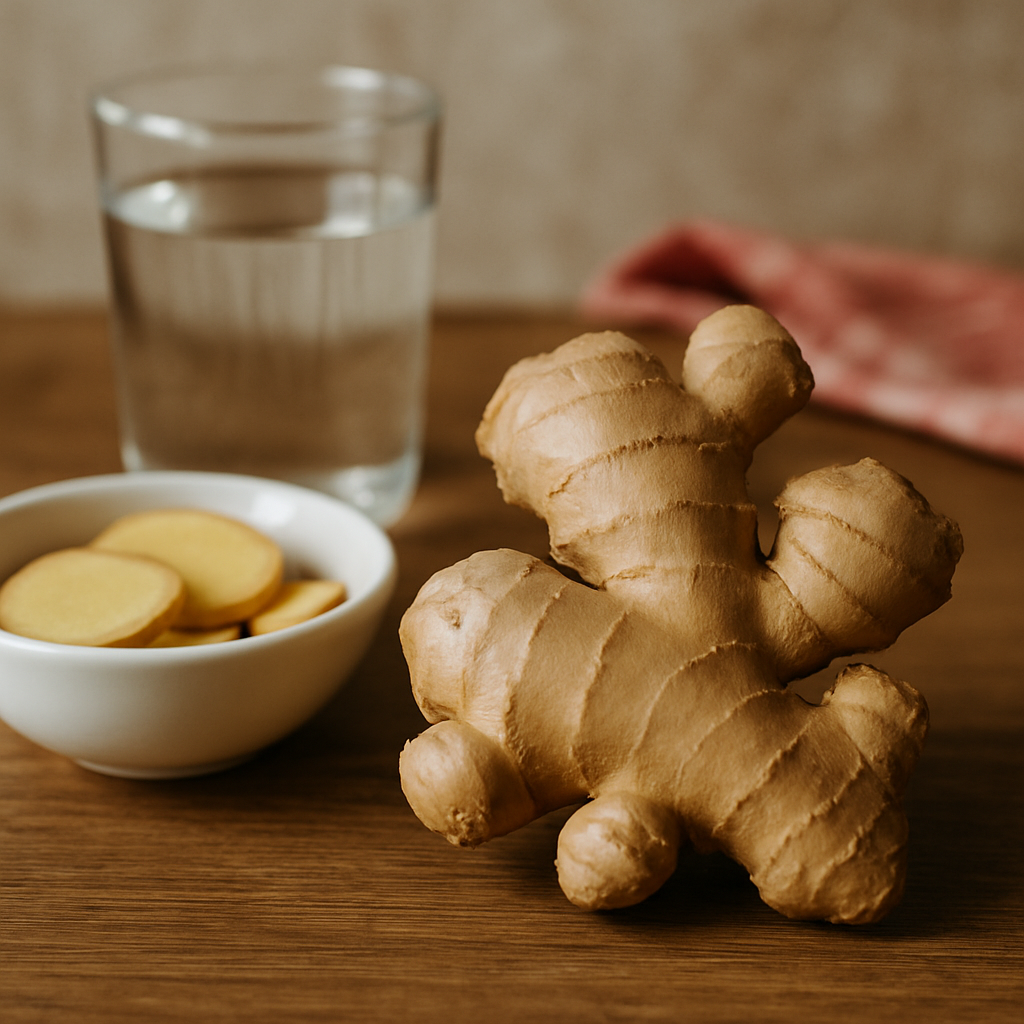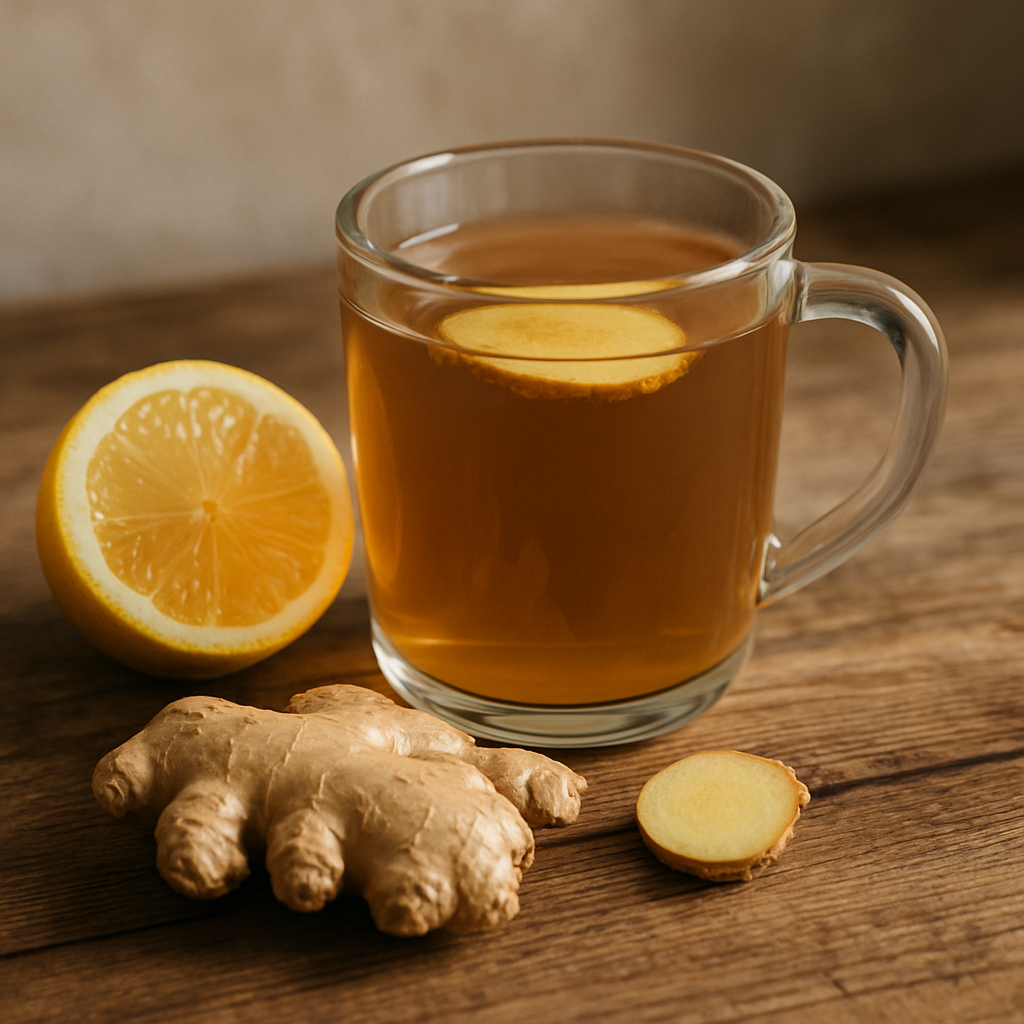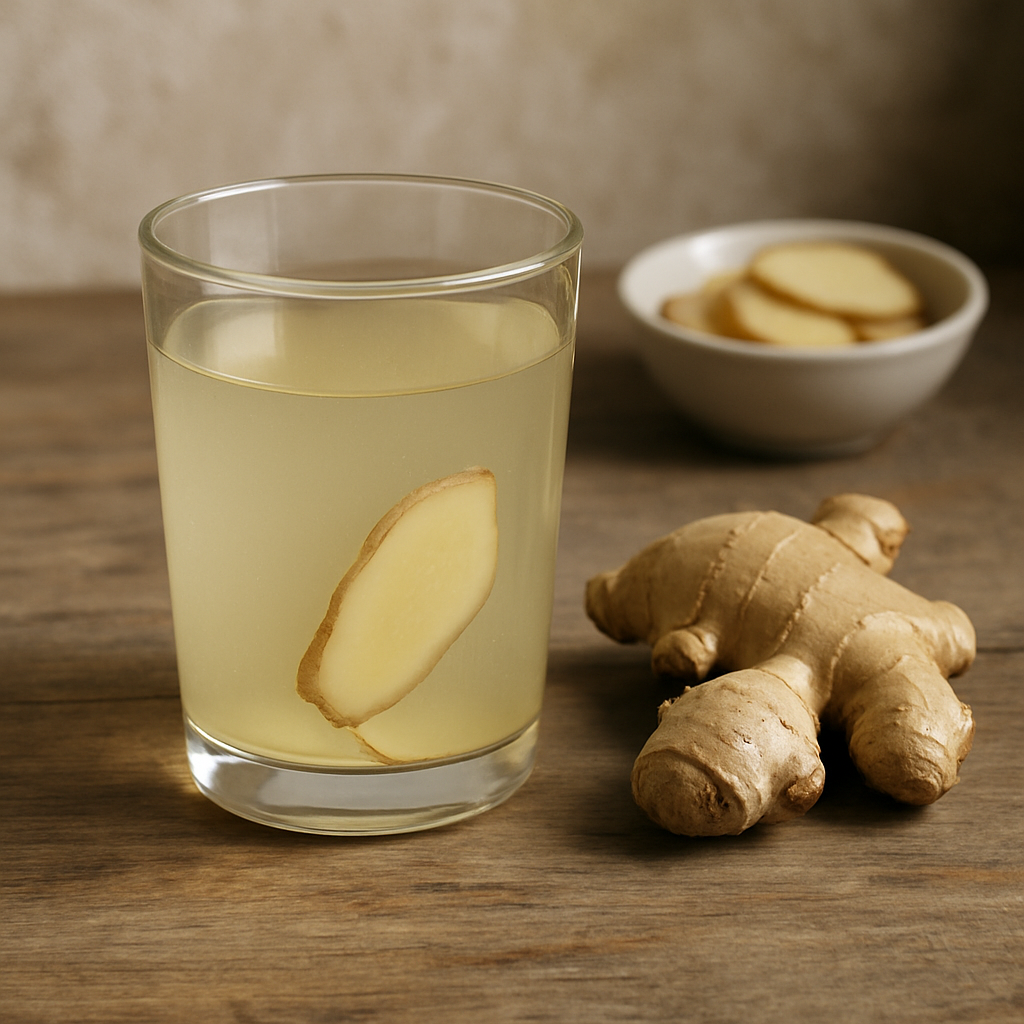Ask Ayurvedic doctor a question and get a consultation online on the problem of your concern in a free or paid mode. More than 2,000 experienced doctors work and wait for your questions on our site and help users to solve their health problems every day.
Ginger for Acidity: Ayurvedic Benefits and Tips

Struggling with that uncomfortable burning in your chest after a meal? You’re not alone. Acidity affects millions daily, and while over-the-counter meds might bring quick relief, they’re not always the best long-term fix. Enter ginger — a powerful root that’s been used in Ayurvedic medicine for centuries. But is ginger good for acidity? Or can it actually make it worse?
If you’ve been Googling phrases like “ginger for acidity” or “ginger tea for acidity,” you’re probably wondering if this common kitchen ingredient is really the remedy it’s hyped up to be. The good news is: ginger is good for acidity — most of the time. But like anything, it depends on how you use it, your body type, and a few other things you probably haven’t thought of.
Let’s dive deep into the spicy world of ginger and acidity. Here’s everything you need to know (and maybe a few things you didn’t expect).
How Ginger Affects Acidity and Digestion
Ayurvedic Perspective on Ginger and Digestion
In Ayurveda, ginger is considered a universal medicine. Known as Vishvabhesaj, it’s celebrated for its ability to ignite the digestive fire — or agni. This is essential in Ayurvedic theory, where weak digestion is often the root cause of acidity, gas, and other tummy troubles.
So, how does this fiery root help? Ginger warms the digestive tract, stimulates enzyme production, and speeds up the breakdown of food. It also helps reduce ama (toxic buildup), which is a major contributor to bloating and — yes — acidity. So from an Ayurvedic point of view, ginger and acidity are definitely related, but mostly in a helpful way.
Still, Ayurveda emphasizes balance. Too much ginger, or taking it at the wrong time, could tip the scales and cause more harm than good. We’ll get to that in a bit.
How Ginger Helps in Acidity and Bloating
Let’s get science-y for a second. Ginger contains compounds like gingerol and shogaol that help relax the gastrointestinal muscles and reduce inflammation. This makes it effective in calming down that irritating feeling of acid reflux or heartburn.
A warm cup of ginger tea can ease bloating, soothe nausea, and speed up digestion — all of which are common issues tied to acidity. So yes, ginger helps in acidity, especially when your symptoms are linked to slow digestion or gas buildup.
That being said, it’s not a magic cure for everyone. Some people might notice that ginger causes acidity or makes them feel even more uncomfortable, especially if taken on an empty stomach or in large amounts. (More on that soon.)
So far, though, for most folks, the answer to “is ginger good for acidity?” is a big spicy YES.

Don't wait or self medicate. Start chat with Doctor NOW
How to Use Ginger for Acidity
Now that we know ginger has some solid street cred when it comes to easing acidity, how should you actually use it? It’s not just about chewing raw ginger (unless you’re into that). There are gentler, more effective ways to get the benefits without the burn.
Ginger Tea for Acidity: Preparation and Benefits
One of the most popular and soothing ways to consume ginger is through tea. And no, we’re not talking about those heavily processed teabags. Real ginger tea starts with the real root.
Simple Ginger Tea Recipe for Acidity Relief:
-
Slice 1 to 2 inches of fresh ginger
-
Boil it in 2 cups of water for 10–15 mins
-
Let it cool slightly and sip slowly
Drink this about 20 minutes after meals to help digestion and prevent acid buildup. Ginger tea for acidity is gentle, warming, and won’t overload your system like raw ginger might.
Plus, the aroma? Totally comforting. It’s like a hug for your stomach.
Ginger Water for Acidity: Simple Recipe
If tea isn’t your thing, ginger water might just be your new best friend. It’s lighter, easier to make, and a great way to support digestion throughout the day. Ginger water for acidity is especially helpful for people who want a milder option that still packs benefits.
Quick Ginger Water Recipe:
-
Grate or thinly slice a small piece of fresh ginger (about ½ inch)
-
Add to a glass or bottle of warm water (about 8–10 oz)
-
Let it infuse for 5–10 minutes
-
Drink slowly, especially after meals
You can also make a larger batch and sip it throughout the day. Some people like to add a bit of lemon or honey, but if you're dealing with acidity, it’s better to keep it plain. Citrus can sometimes aggravate symptoms in sensitive folks.
Ginger water helps flush toxins, stimulates bile production, and prevents indigestion — all of which tie directly into acidity relief. Just don’t overdo it. (Yes, more is not always better.)
Best Time and Dosage for Relief
Timing is everything. Too much ginger at the wrong time can backfire.
For acidity relief, the best time to consume ginger is:
-
15–30 minutes after a meal (especially heavy meals)
-
First thing in the morning only if you have a meal shortly after
-
Avoid on an empty stomach if you're prone to acid reflux
As for dosage? Stick with 1–2 small slices of ginger per day or one cup of ginger tea. Some people chug down 3 cups thinking faster results will come, but honestly? That’s a recipe for disaster.
More ginger doesn’t = more relief. Balance is key.

Can Ginger Cause Acidity in Some People?
So we’ve been hyping ginger quite a bit — and for good reason. But let’s keep it real: ginger isn’t a one-size-fits-all remedy. For some, ginger causes acidity or worsens symptoms. Yep, even the good stuff can backfire.
When Ginger May Irritate the Stomach
Here’s the deal. Ginger is a warming herb. That means it increases internal heat — which is great for sluggish digestion, but not so great if you already have excess heat in your system.
People who take large amounts of raw ginger, drink it too strong, or consume it on an empty stomach might find it irritating. You could experience:
-
Heartburn
-
Stomach discomfort
-
A burning sensation in the chest or throat
And honestly, if you’re already dealing with acidity, the last thing you want is more burning.
So if you’ve tried ginger and it feels like it makes things worse — you’re not imagining it. It’s totally valid.
Dosha Considerations and Individual Sensitivity
In Ayurveda, we all have a unique mind-body constitution, or dosha. People with a Pitta dominance — the fire-type dosha — are more likely to feel heat-related issues like acidity. For them, ginger might not always be a match made in digestive heaven.
Meanwhile, Kapha and Vata types often benefit more, since ginger helps energize and warm up slow or cold digestion.
So, if you’ve ever asked, “does ginger cause acidity?” the answer is… sometimes, yes. It depends on your constitution, how much you take, and how it’s prepared.
Listen to your body. Ayurvedic medicine always comes back to that.

Ginger for Acidity: Dos and Don’ts
So, now that you know both the good and the potentially not-so-good about ginger and acidity, let’s talk about how to make it actually work for you. There are definitely some smart ways to boost the benefits while avoiding those uncomfortable side effects.
Combining Ginger with Other Herbs or Foods
Ginger is great on its own — but when paired wisely, it can be even better. For acidity relief, these combos can help:
-
Ginger + Fennel seeds: Fennel cools the digestive tract and balances ginger’s heat. This combo works wonders after a heavy meal.
-
Ginger + Cumin + Coriander: A classic Ayurvedic mix that soothes indigestion and fights gas.
-
Ginger + Amla (Indian gooseberry): Amla is cooling and rich in vitamin C, making it a perfect counterbalance to ginger’s warmth.
Avoid combining ginger with too much chili, garlic, or citrus if you’re trying to soothe acidity. Those can just add fuel to the fire, literally.
Tips for Choosing the Right Form of Ginger
Fresh ginger, dry ginger powder, capsules, candy… there’s a lot out there. So what’s best?
-
Fresh ginger is your best bet for acidity issues. It’s more balanced and less concentrated.
-
Dried ginger (shunthi) is stronger and more heating — great for Kapha types but might be too much for Pitta folks.
-
Ginger candies and commercial teas often have added sugar and flavoring. Skip those if you’re trying to actually heal.
-
Ginger capsules are okay, but harder to dose properly and sometimes feel too strong.
Look, we all love convenience, but nothing beats fresh, natural forms — especially when dealing with digestion and delicate issues like acid reflux.
Conclusion
So — is ginger good for acidity? In most cases, absolutely. It’s warming, balancing, and can seriously upgrade your digestive health when used right. From ginger tea for acidity to light ginger water after meals, there are many ways to work this powerful root into your life.
That said, it’s not a miracle cure for everyone. If you’re someone who finds that ginger causes acidity or stomach discomfort, don’t ignore the signs. It may just not be the right herb for your body type or current state.
The takeaway? Use ginger wisely, listen to your gut (literally), and don’t fall for the idea that more = better. Balance is everything. And if you’re ever unsure, a qualified Ayurvedic practitioner can help tailor herbs to your unique constitution.
FAQs
What is the fastest way to cure acidity?
Drinking a glass of warm water with a teaspoon of fennel seeds or sipping on ginger tea (not too strong!) can bring quick relief. Also — avoid spicy, fried, or heavy foods and try not to lie down immediately after eating. Breathwork and gentle movement can help too.
Can I drink ginger if I have gastric?
Yes — in many cases, ginger helps calm gas and bloating. But start small and always with food. Some people with sensitive stomachs might need to combine it with cooling herbs like fennel or coriander to avoid irritation.
Does ginger help with gas?
Absolutely. Ginger is known for its carminative properties, which means it helps expel gas from the digestive tract. It also improves enzyme activity, making digestion smoother and less gassy.
If this guide helped you understand the connection between ginger and acidity, share it with someone who might be struggling too. You never know whose day (and digestion) you could make better!
And hey — if you try any of the ginger tea or water recipes, let us know how it goes. We’d love to hear from you. 😊

